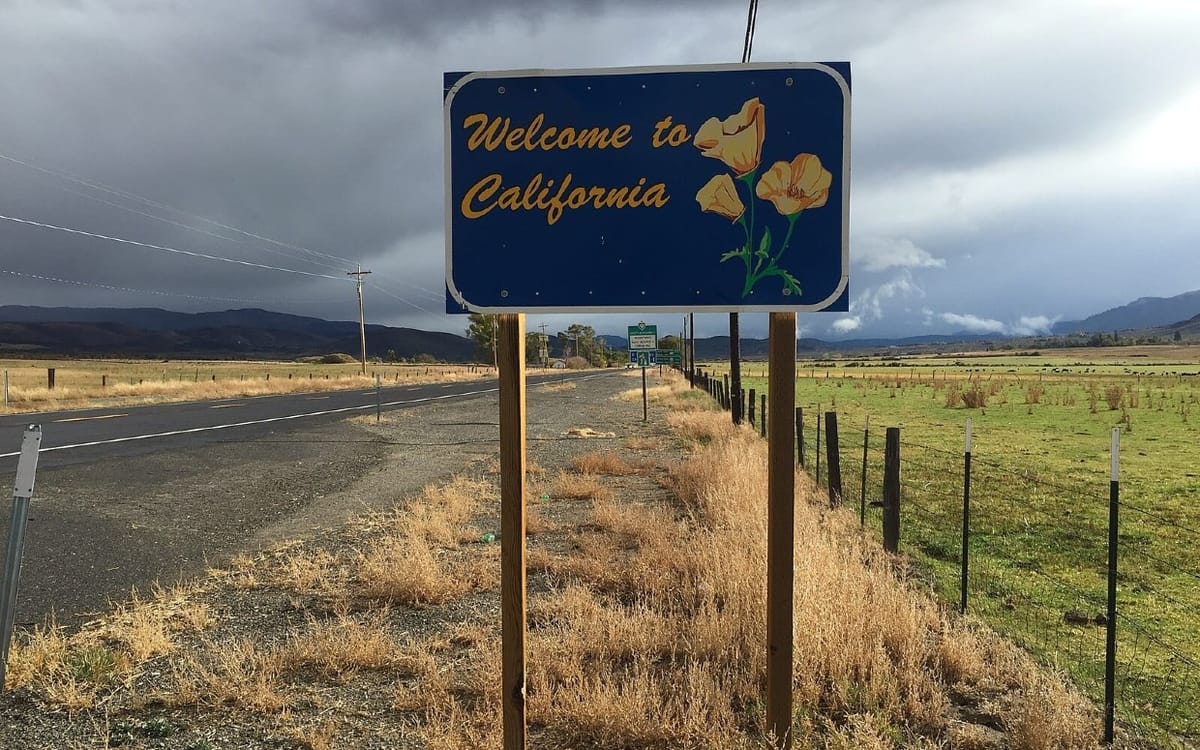Alpine County Open Access Fiber Among Big Winners In Latest California FFA Grants
On August 30, CPUC officials formally approved both a third and fourth round of FFA broadband funding.
Karl Bode

The California Public Utilities Commission has announced another $237 million in new grants that will help fund broadband expansion across 21 different California towns, cities, counties, and tribal communities. Meanwhile, numerous additional grants that are waiting in the wings are expected to get formal approval sometime in September.
Alpine, Mono, Nevada, Placer, Santa Barbara, and Tulare counties are among the latest winners in California’s $2 billion Last Mile Federal Funding Account Grant Program (FFA).
That program is an extension of California’s ambitious Broadband For All initiative, a $6 billion effortaimed at dramatically boosting broadband competition and access across the Golden State.
At an August 22 meeting, CPUC officials formally approved both a third and fourth round of FFA broadband funding. With these latest two rounds of funding, the CPUC says it has doled out $434 million in grant awards across 22 counties across California.
Open access fiber comes to Alpine County via third FFA Round
The third round of formally approved grant awards included $95 million in funding for 10 broadband projects across California’s Alpine, Modoc, Riverside, Santa Barbara, and Tulare counties. This round of awards also included grants for the Fort Bidwell Indian Community in Modoc County and the Santa Ynez Band of Chumash Indians in Santa Barbara County.
Alpine County’s $7 million grant for fiber broadband expansion will be managed by the Golden State Connect Authority and help fund the Alpine County Broadband Network, an open access fiber network that will deliver fiber for the first time to 721 unserved locations and 818 unserved residents across Alpine County.

The project will consist of roughly 37.9 miles of fiber optic lines, most of which will be buried underground using existing roadway conduit.
The full project is expected to cost $10.7 million, 65 percent of which will be covered by the FFA grant. The remainder is expected to be funded through tax-exempt bonds issued by the GSCA – a joint-powers authority that includes 40 rural California counties, specifically built to help bring affordable broadband to long-neglected residents.
“Broadband is the backbone of modern society, enabling everything from remote learning to telehealth services,” GSCA Vice President and Alpine County Supervisor David Griffith said of the latest awards. “These funds will enable us to provide high-speed internet to residents who have been without this essential service for far too long, which will have a profound and lasting impact on our community's future."
The third round of FFA grants will also prove beneficial for the Gidutikad Band of Northern Paiutes-Fort Bidwell Indian Community’s (FBIC) fiber-to-the-home project, which will leverage the help of EnerTribe Inc to build a $24.5 million hybrid last and middle mile network to connect 451 currently unserved addresses.
“By enhancing connectivity, we are opening new doors for our tribal members, providing greater access to education, healthcare, and economic opportunities,” Tribal Chairman Germain Ruvalcaba said of the latest award. “This initiative is more than just an infrastructure upgrade; it is a profound commitment to the well-being and progress of the entire community.”
More in Round 4 and beyond
The CPUC also formally approved a fourth round of grants, worth $142 million, for 11 broadband projects across California’s Mono, Nevada, Placer, Riverside, Sacramento, San Bernardino, and San Mateo counties – as well as a grant to the Colorado River Indian Tribes in Riverside and San Bernardino counties.

AT&T was among the bigger winners here, having struck public private partnership (PPP) agreements with Riverside, San Bernardino, and San Mateo counties to bring fiber to 7,500 unserved residential and business locations.
“These broadband projects put state and federal funds to work, bolstering our economy, building durable infrastructure, and generating quality jobs,” said CPUC President Alice Reynolds. “This infrastructure will meet the work, education, healthcare, public safety, and social needs of Californians well into the future, bringing us closer to achieving our Broadband For All objectives.”
More FFA grant applications are expected to get formal approval in September.
In early August the CPUC gave preliminary approval for a fifth round of FFA grants, funding $91 million in projects across Marin, Mendocino, San Benito, Santa Cruz, and Sutter counties benefitting an estimated 32,000 Californians.
And just last week the CPUC gave preliminary approval for a sixth round of grants worth $174.4 million. Those grants, if approved by the full commission, will provide FFA funding for projects in Del Norte, El Dorado, Humboldt, Santa Clara, and Siskiyou counties, as well as grants to three Tribal entities in Del Norte and Humboldt counties—the Tolowa Dee-ni’ Nation, Karuk Tribe, and Yurok Telecommunications.
Ongoing implementation of a much bigger plan for California
California’s Broadband For All plan was born in 2021 thanks to Senate Bill 156. The proposal, as well as all FFA grants so far, were largely made possible by the 2021 federal American Rescue Plan Act.
Not only did SB156 include $2 billion for last mile broadband deployments, it included $3 billion to help construct a new middle mile network intended to dramatically boost broadband access in the state dubbed the Middle-Mile Broadband Initiative.
Both components of California’s plan will be funded by Coronavirus relief funds, federal Broadband Equity, Access, and Deployment subsidies, and California State Government grants. All related projects are slated to be finished by December 2026 as per federal funding rules.

The CPUC has repeatedly noted that it couldn’t get anywhere close to funding the full amount of potential applications. Since the initial round of applications closed in September 2023, the CPUC says it received and reviewed 484 grant applications from every county in the state, totaling more than $4.6 billion in requests for a $2 billion program.
California’s efforts haven’t been without controversy. There’s been sustained, ongoing concerns among digital equity advocates and public interest groups about a lack of transparency, substandard maps, and politics preventing funds from being distributed equitably. The California Alliance for Digital Equity (CADE) has been particularly focused on bringing attention and policy remedies to combat “digital discrimination” in and around LA County.
Those concerns were highlighted in a recent episode of our recent Community Broadband Bits podcast, in which guest Lindsey Skolnik discussed the advocacy efforts of CADE around the state’s Middle Mile project, digital discrimination legislation, and the collaborative efforts being made to bring reliable and affordable broadband access to neglected communities across the state.
But warts and all, the CPUC FFA program still seems poised to be transformative for a growing roster of under-connected California communities.
This article was originally posted by Community Broadband Networks Initiative of Institute for Local Self Reliance on August 29, 2024, and is reprinted with permission.









Member discussion